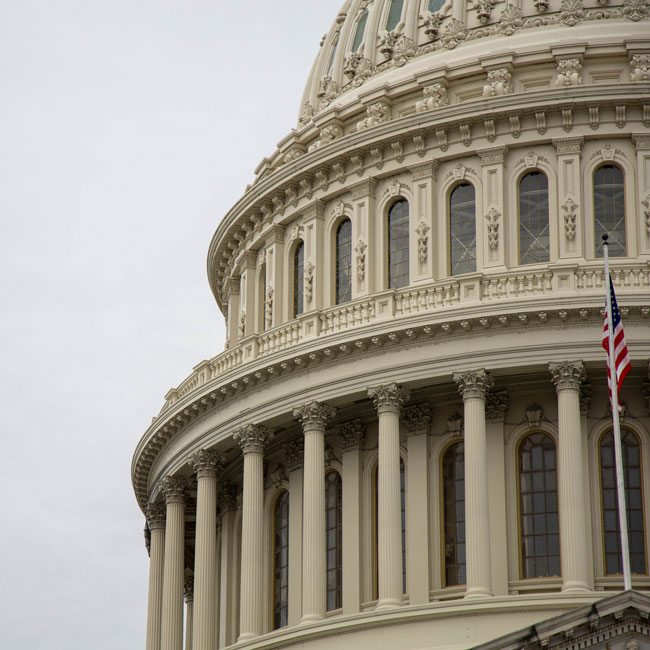
Capitalism is global, but is it ethical?
Opinion + AnalysisBusiness + Leadership
BY Trevor Treharne The Ethics Centre 7 APR 2016
Does the dominant economic system of the Western world withstand moral scrutiny? Trevor Treharne asks leading moral philosophers and experts.
While economics are seldom discussed in directly ethical terms, it is through the spirit of moral inquiry that today’s capitalist societies were originally imagined.
Adam Smith, the 18th century thinker known as the father of modern economics and capitalism, was first and foremost a moral philosopher.
Smith’s famous metaphor of ‘the invisible hand’ attempted to describe the wider social benefits that result from individual actions. Capitalism was designed to be ethical, but is it?
The achievement of capitalism
Assuming society has certain obligations – the reduction of poverty, the improvement of health and the extension of human happiness – capitalism plays an important role.
“The best things about capitalism are its mind-boggling productivity and its exquisite sensitivity to what people want and need”, says John Bishop, a moral philosopher at Trent University in the UK and editor of the book Ethics and Capitalism.
Bishop argues that historically and globally, capitalism has caused the life expectancy of people to rise from about 28 years to over 70 years.
“Much of this has been through reducing infant and child mortality – a most ethical goal – and lifting hundreds of millions of people out of abject poverty.”
“Capitalism creates net new wealth on a scale the world has never before seen”, he says.
Harvard cognitive scientist Steven Pinker says that it’s hard to have an intelligent discussion about capitalism because too many people confuse “capitalism” with “unregulated capitalism with no social welfare”. Their criticisms have nothing to do with capitalism itself but about whether it’s a good idea for governments to regulate economic activity to provide social benefits. This is completely compatible with capitalism, as the capitalist economies of Scandinavia, Canada, and New Zealand prove.
“Putting aside that red herring, there are several advantages to capitalist economies, apart from generating wealth that makes rich and poor alike better off”, Pinker says.
“Countries that trade with each other are less likely to start wars with each other, because with effective markets it’s cheaper to buy things than to steal them.”
“Also, in a market economy, other people are more valuable to you alive than dead. All of this reduces some of the exploitative incentives of war and conquest”, Pinker adds.
The issues with capitalism
Bishop warns that capitalism has a tendency to distribute its benefits in an extremely unequal fashion.
“It also has the inability to value important things that do not have market value such as human dignity, caregiving, the climate, the environment, and people who have nothing to offer the market, such as children, the severely disabled, and the elderly”, he says.
Bishop says capitalism also fails to account for the needs of future generations.
“Given this, our ethical duty is to mitigate the harms and omissions of capitalism without serious disruption of its immense productivity and wealth creation.”
Simon Tormey, a political theorist at The University of Sydney, says the problems of capitalism depend on the governing system it operates within.
“What has tended historically to dictate which end of the [ethical] spectrum capitalism appears on is the ability of ordinary people to rein back capitalism’s excesses through the actions of the state on the one hand, and of social movements such as trade unions on the other”, he says.
“Countries with strong states and strong social movements are able to develop forms of capitalism that are quite ethical in this respect and Scandinavia would perhaps offer the most complete examples.”
“However, countries where there is authoritarian governance, where trade unions and other social movements are weak, are often characterised by a highly unethical and obnoxious form of capitalism that prays on individual weakness to generate profits for a small minority.”
Tormey adds that unfortunately much of the evidence of the past 40 years suggests a progressively slippery slope to domination by “the 1%” and thus to “unethical capitalism”.
Not perfect, but superior
Society is ordered by picking a preference from a series of competing systems, all of which flourish and flounder in varying degrees.
It is not sensible to overthrow a system such as capitalism on the mere basis of a few potential pitfalls.
But noting the issues can start a conversation about its reform or adaption.
“Is capitalism ethical? As compared to what?” asks moral philosopher Peter Singer.
“So far, none of the alternatives tried have done nearly as good a job as capitalism of keeping most of the population out of poverty and even providing them with a reasonable level of comfort.”
“Until we have evidence that there is another system that can do better, the sensible course seems to be to stick with capitalism and attempt to deal with its flaws rather than to abandon it”, Singer adds.
Ethics in your inbox.
Get the latest inspiration, intelligence, events & more.
By signing up you agree to our privacy policy
You might be interested in…
Opinion + Analysis
Business + Leadership, Health + Wellbeing, Society + Culture
Ethical concerns in sport: How to solve the crisis
Opinion + Analysis
Business + Leadership, Politics + Human Rights
No justice, no peace in healing Trump’s America
Opinion + Analysis
Business + Leadership
The Royal Commission has forced us to ask, what is business good for?
Opinion + Analysis
Business + Leadership, Politics + Human Rights, Society + Culture




